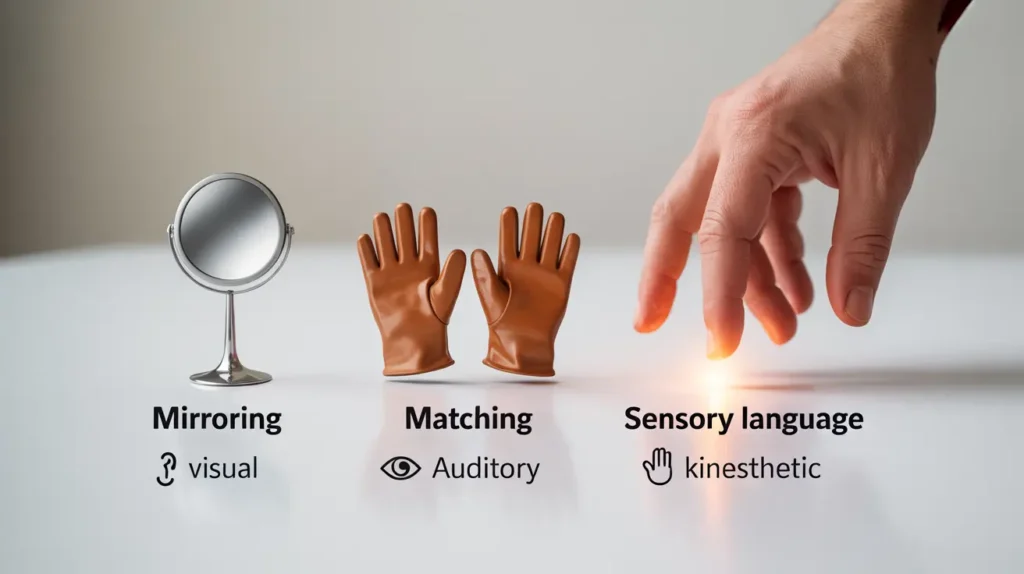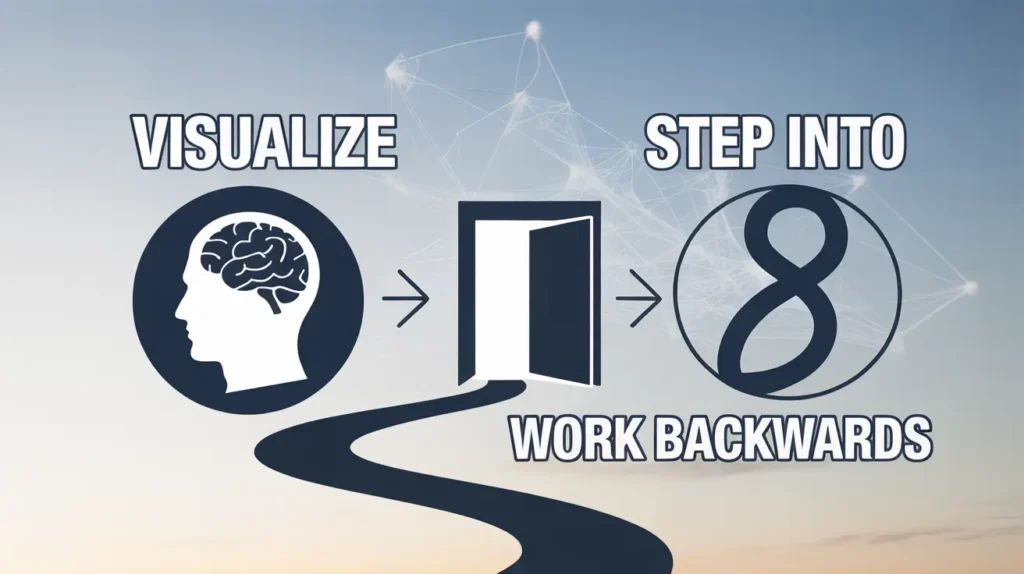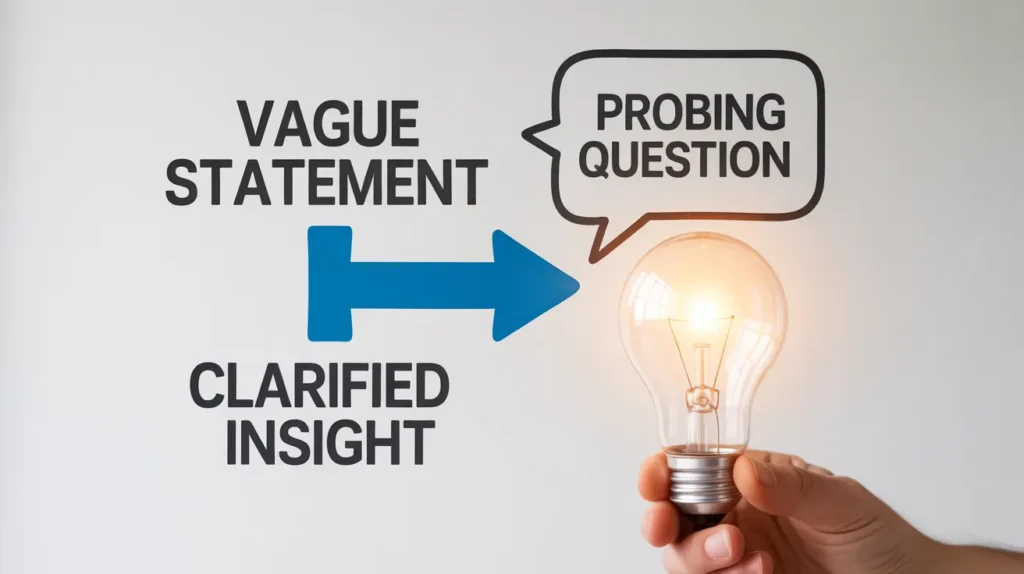The best NLP strategies for entrepreneurs include rapport building, reframing challenges into opportunities, future pacing for goal clarity, anchoring for confidence, and meta-model questioning to uncover deeper insights. These tools sharpen communication, improve negotiation, boost emotional intelligence, and foster resilience, helping entrepreneurs thrive in business and beyond.
Think about the most successful entrepreneurs you admire. They don’t just have big ideas; they know how to influence, negotiate, and inspire others to join their vision. On the other hand, many entrepreneurs struggle not because their idea is bad, but because they can’t communicate it effectively, manage setbacks, or lead with confidence.
This is where Neuro-Linguistic Programming (NLP) becomes a powerful advantage. NLP offers entrepreneurs practical strategies to improve communication, shift mindset, and build resilience, turning obstacles into stepping stones for growth.
Key Take aways
- Rapport building helps entrepreneurs win trust quickly in sales, pitches, and partnerships.
- Reframing transforms setbacks into growth opportunities.
- Anchoring lets you access confidence, calm, or motivation instantly.
- Future pacing clarifies goals and strengthens team alignment.
- Meta-model questioning uncovers hidden needs and resolves objections.
- NLP gives entrepreneurs a competitive edge by combining emotional intelligence with practical influence skills.
What Is NLP and Why Does It Matter for Entrepreneurs?

NLP (Neuro-Linguistic Programming) studies the connection between language, thought, and behavior. For entrepreneurs, this translates into:
- Sharpened influence: Pitching investors, motivating teams, and closing sales.
- Mindset mastery: Reframing failure as feedback.
- Confidence on demand: Handling uncertainty with resilience.
In short, NLP helps entrepreneurs not just “do business” but lead with clarity, charisma, and impact.
Rapport Building for Influence and Sales

Entrepreneurs often succeed based on relationships. Whether pitching to an investor or closing a client deal, rapport is the foundation.
- Mirroring & Matching: Subtly reflect tone, posture, or phrasing to create trust.
- Sensory Language: Speak in the style your listener prefers (visual: “I see what you mean,” auditory: “I hear you”).
Example: In a sales pitch, using the same sensory language as your client helps your offer resonate faster. Explore our Advanced NLP Training & Certification.
Reframing Challenges into Opportunities

Entrepreneurship is full of rejection and uncertainty. NLP reframing allows you to shift perspective:
- “Failure” becomes feedback.
- “Problems” turn into possibilities.
- “Setbacks” become setups for learning.
Example: Instead of “My pitch failed,” reframe to “Now I know what doesn’t work, I’m one step closer to the right pitch.”
Anchoring Confidence for High-Stakes Moments

Imagine being able to feel confident on demand before a big investor meeting. NLP anchoring makes this possible:
- Recall a time you felt fully confident.
- Intensify the memory (visualize, feel, hear it).
- Anchor it with a gesture (like touching your wrist).
- Trigger the anchor before presentations or negotiations.
This tool lets entrepreneurs “switch on” their best state instantly.
Future Pacing for Goal Clarity

Entrepreneurs often juggle competing visions. NLP’s future pacing technique helps you and your team see the future clearly.
- Visualize the outcome: Picture the business 6–12 months ahead.
- Step into it: Imagine experiencing it firsthand.
- Work backward: Identify the steps needed to achieve it.
Example: Leading a team meeting, you describe the company six months after a successful launch and everyone feels aligned and motivated.
Meta-Model Questioning for Deeper Insights

In business conversations, people often speak vaguely: “The market isn’t ready,” “We don’t have enough resources.”
Meta-model questioning digs deeper:
- “What specifically makes the market unready?”
- “What resources are missing, and how could we create them?”
This strategy uncovers hidden opportunities and breaks limiting assumptions.
Bonus Strategies for Entrepreneurs
- Swish Pattern: Replace negative mental images (fear of failure) with empowering ones (vision of success).
- Perceptual Positions: Step into the perspective of investors, customers, or competitors for sharper decision-making.
- Visualization & Storytelling: Create vivid pitches that emotionally engage audiences.
NLP vs. Traditional Business Strategies
| Skill | Traditional Approach | NLP-Enhanced Approach |
| Sales & Negotiation | Focus on facts and features | Build trust through rapport & language patterns |
| Leadership | Task-focused | Mindset-driven, influence-based |
| Handling Failure | Avoid or suppress | Reframe into opportunity |
| Confidence | Build slowly | Anchor instantly |
| Goal Setting | General and vague | Clear, vivid, emotionally engaging |
Long-Term Benefits of NLP for Entrepreneurs
- Stronger client relationships and higher conversion rates.
- Greater resilience in handling stress and uncertainty.
- A motivated team aligned with the company vision.
- Faster personal growth and leadership development.
Conclusion
Entrepreneurship is a game of mindset, influence, and resilience. NLP strategies equip entrepreneurs with powerful tools to:
- Communicate with clarity.
- Influence ethically.
- Reframe challenges.
- Build confidence on demand.
- Inspire teams and stakeholders.
By mastering NLP, entrepreneurs gain the edge not just to survive business challenges but to thrive, lead, and leave a lasting impact.
FAQs
Is NLP practical for entrepreneurs?
Yes. NLP provides actionable tools for sales, negotiations, confidence-building, and leadership, key areas that every entrepreneur needs.
Can NLP help with fundraising or pitching investors?
Absolutely. Techniques like rapport building, storytelling, and reframing make pitches more compelling and persuasive.
How is NLP different from regular business coaching?
While coaching focuses on strategy, NLP equips you with mindset and communication tools that make strategies easier to implement.
Do entrepreneurs need certification in NLP?
Not necessarily. Even a few techniques can transform how you communicate and lead, but certification deepens mastery.
Where can I learn NLP for entrepreneurship?
You can explore NLP for Business & Entrepreneurs Training or attend workshops that specialize in leadership and communication skills.





